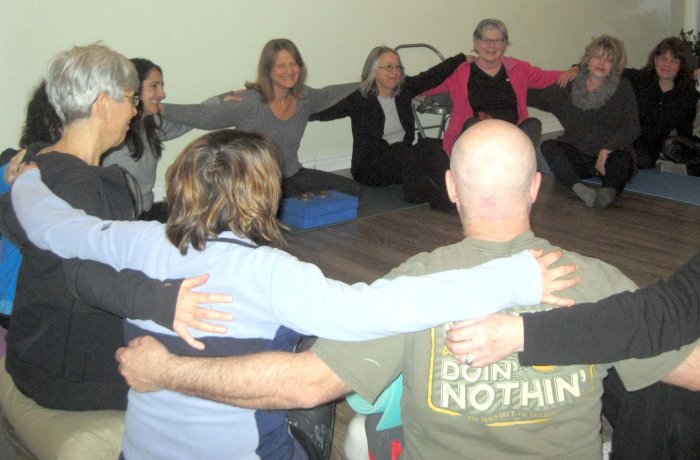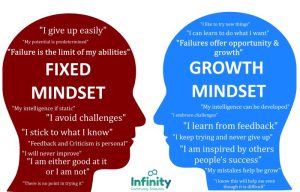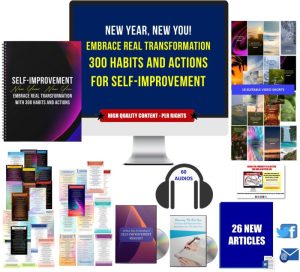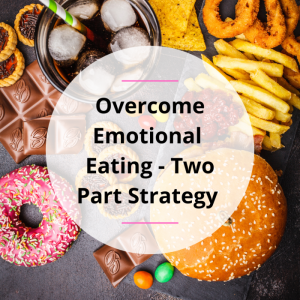Mindfulness Retreats and Workshops Find Inner Peace

Mindfulness retreats and workshops offer a transformative path to inner peace and well-being. These immersive experiences provide a structured environment to cultivate mindfulness practices, reducing stress, anxiety, and depression. Participants explore various techniques, from guided meditation and mindful movement to self-compassion exercises, all designed to foster emotional resilience and personal growth. Whether seeking stress management, improved sleep, or enhanced self-awareness, these retreats and workshops offer a supportive journey of self-discovery.
The diverse formats cater to various preferences, encompassing silent retreats for deep introspection, guided meditation retreats for structured practice, and movement-based retreats for a more active approach. Workshops typically involve interactive sessions, discussions, and practical exercises, equipping participants with tools for daily mindfulness integration. The benefits extend beyond the retreat itself, fostering lasting changes in mental health and overall well-being.
Introduction to Mindfulness Retreats and Workshops

Mindfulness retreats and workshops offer structured environments to cultivate present moment awareness and develop skills for managing stress and enhancing well-being. These programs vary in format and intensity, providing tailored experiences for individuals seeking to deepen their mindfulness practice. The core principles underlying these experiences emphasize non-judgmental observation of thoughts, feelings, and sensations, fostering self-compassion and emotional regulation.Mindfulness, at its core, involves paying attention to the present moment without judgment.
This involves cultivating awareness of bodily sensations, thoughts, and emotions as they arise, observing them without getting carried away by them. In retreat settings, this principle is applied through various practices, including meditation, mindful movement, and mindful eating, creating a space for deep self-reflection and personal growth. The structured environment of a retreat minimizes external distractions, allowing participants to fully immerse themselves in the practice.
Mindfulness Retreat Formats
Mindfulness retreats come in a variety of formats, each designed to cater to different learning styles and preferences. Silent retreats emphasize introspection and deep meditative practice, often involving periods of extended silence to foster inner peace. Guided meditation retreats provide structured sessions with experienced instructors, offering support and guidance for participants of all levels. Movement-based retreats integrate mindful movement practices like yoga or tai chi, connecting the mind and body through physical activity and awareness.
The choice of retreat format depends on individual needs and goals, with some individuals preferring the intense focus of a silent retreat while others benefit from the structured guidance of a guided meditation retreat.
Mindfulness Workshop Structure
A typical mindfulness workshop unfolds over a defined period, usually a few hours to a full day. Sessions are designed to introduce core mindfulness principles and practices, often incorporating interactive exercises and group discussions. A typical structure might include introductory sessions explaining the principles of mindfulness and its benefits, followed by guided meditation practices to cultivate present moment awareness.
Workshops may also include mindful movement exercises, discussions on applying mindfulness to daily life, and opportunities for sharing experiences and reflections among participants. The content and activities are tailored to the specific aims of the workshop, ranging from stress reduction techniques to enhancing self-compassion and emotional regulation.
Exploring Mental Health Advocacy Through Mindfulness

Mindfulness, the practice of paying attention to the present moment without judgment, offers a powerful pathway to improved mental well-being and effective advocacy for mental health. By cultivating self-awareness and emotional regulation, individuals can better understand their own needs and effectively communicate them to others, leading to improved mental health outcomes and broader societal change. This exploration delves into the intersection of mindfulness and mental health advocacy, highlighting key organizations, empowering practices, and readily available resources.Mindfulness practices provide individuals with the tools to navigate the complexities of mental health challenges and advocate for themselves and others.
Through consistent practice, individuals gain a deeper understanding of their internal landscape, fostering self-compassion and reducing the stigma associated with mental illness. This self-understanding forms the foundation for effective communication and assertive advocacy.
Key Organizations and Initiatives Promoting Mental Health Awareness Through Mindfulness
Several organizations actively promote mental health awareness and integrate mindfulness practices into their initiatives. These organizations provide resources, training, and support to individuals, professionals, and communities seeking to improve mental well-being through mindful approaches. Examples include the Mindful Awareness Research Center (MARC), which conducts research on mindfulness and its effects on mental health, and the Center for Mindfulness in Medicine, Health Care, and Society (CFM), which offers training programs and resources for healthcare professionals and educators.
Many other smaller, community-based organizations also integrate mindfulness into their mental health support programs. These organizations often partner with mental health professionals to ensure the efficacy and ethical delivery of their mindfulness-based interventions.
Empowering Individuals to Advocate for Their Own Mental Well-being Through Mindfulness
Mindfulness empowers individuals to advocate for their mental well-being in several ways. Firstly, by cultivating self-awareness, individuals can better identify their triggers, stressors, and coping mechanisms. This heightened self-understanding allows for proactive management of mental health, enabling individuals to make informed decisions about their care and communicate their needs effectively to healthcare providers, family, and friends. Secondly, mindfulness practices such as meditation and deep breathing can help manage stress and anxiety, reducing the emotional burden often associated with advocating for oneself.
This improved emotional regulation empowers individuals to approach challenging conversations with greater clarity and composure. Finally, mindfulness fosters self-compassion, allowing individuals to approach their mental health challenges with kindness and understanding, rather than self-criticism, thereby enhancing their resilience and motivation to seek support.
Resources for Individuals Seeking Mental Health Support and Advocacy
Access to appropriate resources is crucial for individuals seeking mental health support and advocacy. The following resources offer a range of services and information to assist individuals in their journey towards improved mental well-being:
- The National Alliance on Mental Illness (NAMI): Provides support groups, education, and advocacy for individuals and families affected by mental illness.
- The MentalHealth.gov website: A comprehensive resource for information on mental health conditions, treatment options, and support services.
- The Substance Abuse and Mental Health Services Administration (SAMHSA): Offers a national helpline (1-800-662-HELP) and online resources for individuals struggling with mental health and/or substance use disorders.
- The Crisis Text Line: Provides free, 24/7 support via text message (text HOME to 741741).
- Local mental health clinics and hospitals: Offer a range of services, including therapy, medication management, and crisis intervention.
Integrating Mindfulness into Therapy and Counseling: Mindfulness Retreats And Workshops
Mindfulness, the practice of paying attention to the present moment without judgment, has become increasingly integrated into various therapeutic approaches, significantly enhancing the effectiveness of traditional mental health treatments. Its core principles of self-awareness and acceptance provide a powerful framework for addressing a wide range of psychological challenges.Mindfulness is effectively incorporated into several therapeutic modalities, bolstering their efficacy and expanding their therapeutic reach.
Mindfulness in Cognitive Behavioral Therapy (CBT), Mindfulness retreats and workshops
Mindfulness-based Cognitive Therapy (MBCT) combines the core principles of CBT with mindfulness practices. CBT traditionally focuses on identifying and modifying negative thought patterns and behaviors. MBCT adds mindfulness meditation and other mindfulness exercises to help individuals become more aware of their thoughts and emotions without judgment, thereby reducing their reactivity to negative thought patterns. This allows for a more effective modification of maladaptive behaviors and thought processes.
For example, in treating depression, MBCT helps individuals recognize and accept their negative thoughts rather than struggling against them, leading to a more compassionate and effective self-management strategy.
Mindfulness in Dialectical Behavior Therapy (DBT)
DBT, originally designed for borderline personality disorder, emphasizes the importance of emotional regulation and distress tolerance. Mindfulness is a central component of DBT, teaching individuals to observe their emotions and sensations without judgment. Mindfulness skills in DBT are utilized to improve emotional regulation, increase self-awareness, and enhance interpersonal effectiveness. For instance, a DBT client might use mindfulness techniques to observe a rising feeling of anger, noticing the physical sensations in their body before it escalates into an outburst.
This increased awareness allows for a more thoughtful response rather than a reactive one.
Benefits of Combining Mindfulness Practices with Traditional Therapy Methods
The integration of mindfulness practices enhances traditional therapy methods in several key ways. Firstly, it promotes increased self-awareness, enabling clients to identify triggers and patterns of thinking and behaving that contribute to their difficulties. Secondly, it cultivates self-compassion, allowing clients to treat themselves with kindness and understanding during moments of distress. Thirdly, it improves emotional regulation skills, equipping clients with tools to manage intense emotions more effectively.
Finally, it fosters a sense of present moment awareness, reducing rumination on the past or anxiety about the future. These benefits collectively lead to improved treatment outcomes and a greater sense of well-being.
Effectiveness of Mindfulness-Based Therapies Compared to Other Mental Health Treatments
Numerous studies have demonstrated the effectiveness of mindfulness-based therapies in treating various mental health conditions, including depression, anxiety, and PTSD. While direct comparisons to other treatments can be complex due to variations in study designs and populations, research suggests that mindfulness-based interventions are often comparable to, and sometimes even superior to, other established treatments. For example, MBCT has shown comparable efficacy to antidepressant medication in preventing relapse in recurrent depression.
The benefits of mindfulness-based approaches often extend beyond symptom reduction, promoting overall well-being and resilience. However, it’s crucial to note that mindfulness is not a standalone cure-all and is most effective when used in conjunction with other appropriate therapeutic interventions or as a supportive adjunct to medication.
Ultimately, mindfulness retreats and workshops provide invaluable tools for navigating the challenges of modern life. By cultivating present moment awareness and self-compassion, individuals can enhance their mental health, build resilience, and embark on a journey of personal growth and self-discovery. Whether integrated into therapy, applied in the workplace, or practiced independently, mindfulness offers a powerful pathway towards a more balanced and fulfilling life.
The lasting impact of these experiences extends far beyond the retreat setting, equipping participants with skills to navigate life’s complexities with greater ease and equanimity.
Detailed FAQs
What is the typical cost of a mindfulness retreat?
Costs vary widely depending on location, duration, and amenities, ranging from a few hundred to several thousand dollars.
Are mindfulness retreats suitable for beginners?
Absolutely! Many retreats cater specifically to beginners, providing foundational instruction and support.
How long are mindfulness workshops typically?
Workshops vary in length, from a single day to several days or even weeks, depending on the program’s focus.
What if I have a pre-existing mental health condition?
It’s crucial to consult your healthcare provider before participating, especially if you have severe mental health concerns. Some retreats specialize in supporting individuals with specific conditions.




